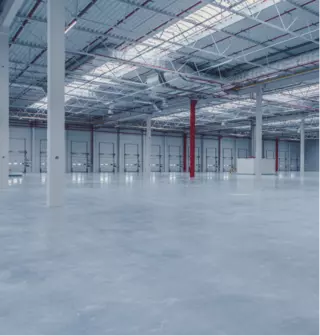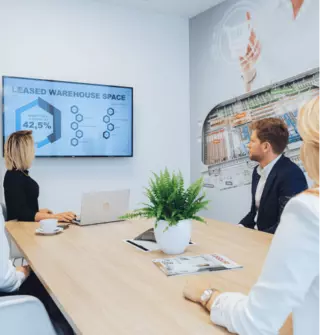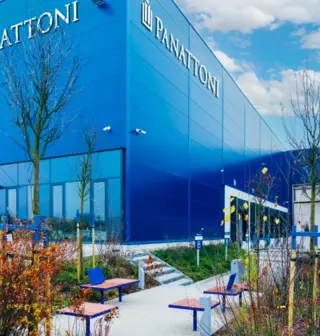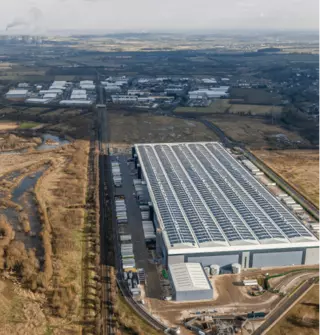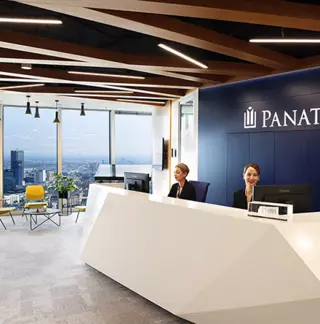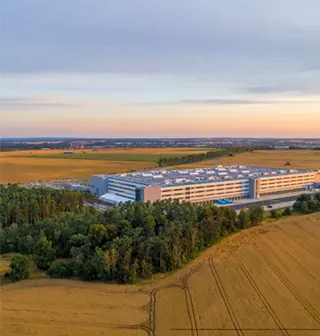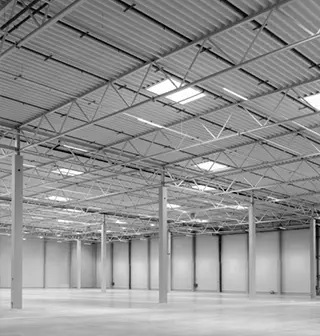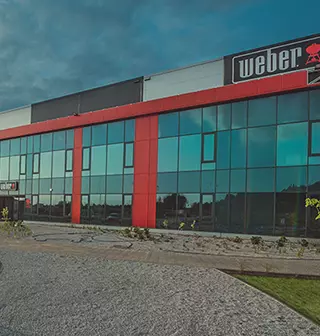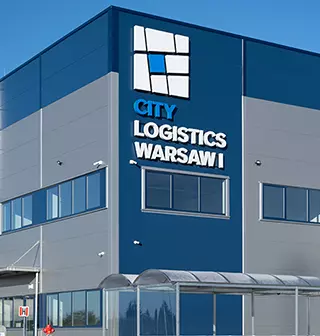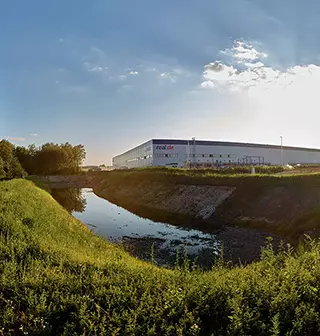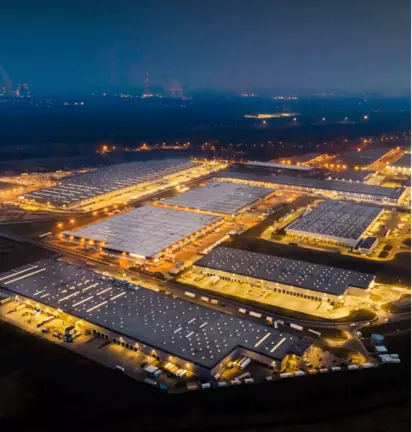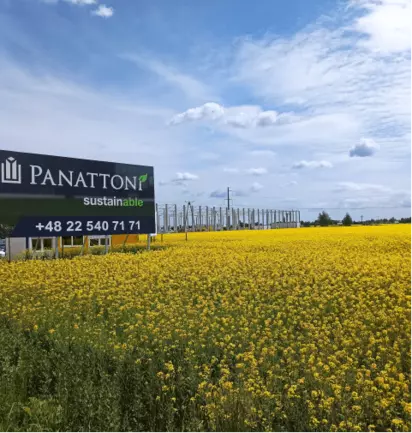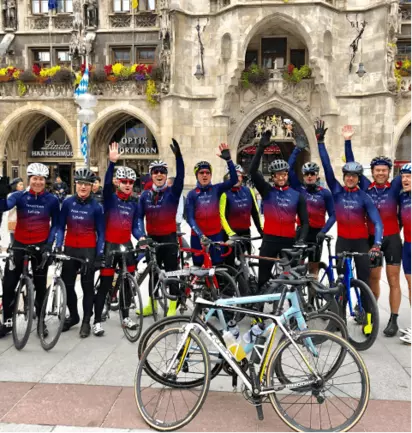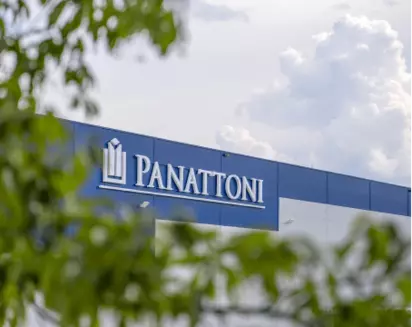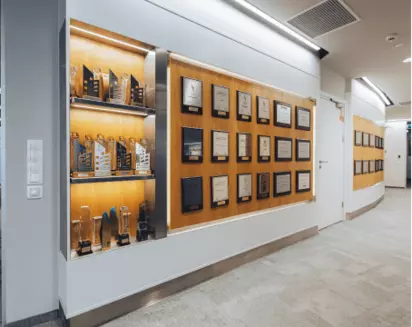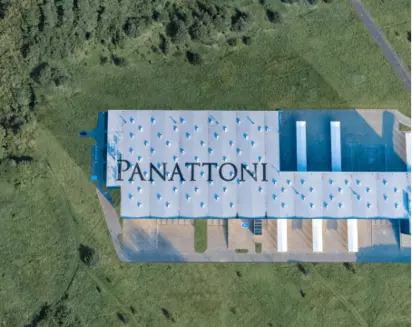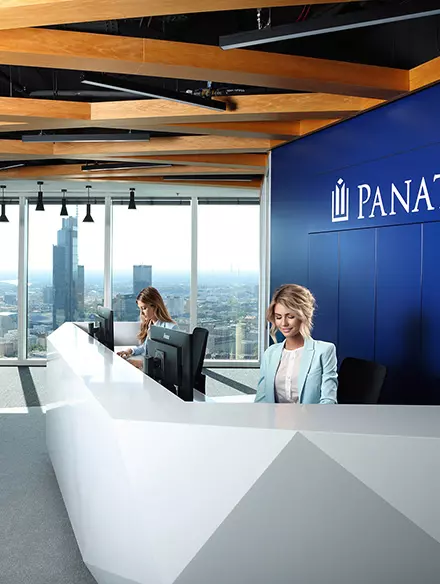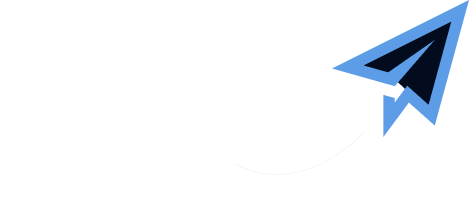
Omenaa Mensah, President of Omenaa Foundation and OmenaArt Foundation: You come from Ełk, small city in Masuria. At what point in your life did you feel that you had the entrepreneurial spirit?
Robert Dobrzycki, President of Panattoni Europe: From a young age, I worked with my father. I helped him in his small culinary and tourism business, which he ran in northeastern Poland. I have been close to entrepreneurship my whole life and was fascinated by all the processes necessary for a business to be profitable. As far back as I can remember, I couldn't sit still and wanted to do more than just work. I went to Warsaw for my studies because I knew I had a better chance of developing in the capital. I had several ideas in my head that I wanted to implement because I saw potential in the newly forming free market in Poland.
How did you end up at Panattoni?
After five years of studying at the University of Warsaw, I started working as a junior accountant at the American development company Menard Doswell & Co., which built warehouses. I didn't dive into the deep end because I wanted to gain the necessary experience. I observed transactions at every stage, learned about the market, and watched. Step by step, I got promoted until I became the managing director.
You were promoted to that position in just six years! How did you manage that?
Menard Doswell & Co. was involved in the same business as Panattoni, but on a very small scale. The great advantage was that it was a small, 15-person American company with Polish capital but enormous potential. As a young person, I took on more and more responsibilities until I said I would handle everything. I was hungry for both knowledge and success. What others saw as problems, I saw as challenges. After a year of managing the company, and I was 29 at the time, I realized I wanted even more. Unfortunately, the then-management had no desire for further development. 2005 was a breakthrough year in my life because I met Carl Panattoni on my professional path.
How did you manage to convince the American millionaire to invest in the ambitious business of a Pole?
We met when Carl was returning from an industry conference in Prague and stopped by in Warsaw. We had three meetings, but from the very beginning, I felt a connection with him. I didn't waste the opportunity and presented him with my business vision and development plan. He agreed, although... he had no expectations. We started the joint business in 2005, practically from scratch. He went back to the States, and I was left alone in an empty office, wondering what I had done.
You put everything on the line! Did your family support you?
Well, they wondered along with me what possessed me to risk everything to realize my idea. You know, I had a nice, stable job in Warsaw, and my life was quite good and peaceful.
Do you remember the plan you had in mind then?
To survive (laughs) and organize everything from scratch. Previously, I worked surrounded by people; the silence in the new office was unbearable because I was alone. It was extremely stressful, but at the same time, I felt I had a blank slate, and how everything would turn out depended solely on me. Initially, I had no help in the office. I started with equipping it. I bought equipment and printers. I hired an assistant, three managers, an IT department, and tried to make my first transactions. The first one was finalized three months later – in Bielsko-Biała for the cosmetics company Coty. In the fifth month of operation, we managed to close the largest transaction in the Central European market, which was a warehouse for H&M with an area of 50,000 square meters. Honestly? I shouldn't have gotten those contracts because I had no backing, but when I pitched them, I didn't highlight that.
It turned out to be effective!
I invited all the consultants to the meeting, and we made a crowd (laughs). I introduced them as my team, even though I was alone. After signing that contract, I was sick for a week. The stress subsided, the adrenaline dropped, and my body gave out.
Do you remember the value of that contract?
It was about 25 million euros, so a significant amount.
You admitted that in business, you often played va banque. Could you always count on Carl Panattoni's support?
He supported all my decisions and respected them. He trusted me, apparently believing that I was either a madman or a visionary. Yes, I had previously run a business on the local market, but I lacked certain elements of know-how. I had an open mind, closely followed the market, and worked with experts, absorbing the missing knowledge. This helped me avoid mistakes and ensured that the energy for action was well utilized. I kept moving forward. Sometimes I had to make a stop, but I never fell. If I had no help or knowledge, I would have certainly painfully stumbled several times on this business path or gone the wrong way. I also took to heart Carl's words when I once asked him how he built his empire and achieved such success.
What did he tell you?
"I didn't do it alone!" And that was the key sentence. Today, I adhere to the belief that work should be shared, responsibilities wisely delegated, and someone else's experience utilized. It's all about finding good collaborators, developing know-how, and drawing from it if you want to scale the business.

What values guide you in running your business?
Every entrepreneur must have an inner drive to do more, find innovative solutions, and remain competitive. If this desire for development is combined with passion and a will to win, it will eventually translate into results in any business. You must not give up or be discouraged by failures. If we lack expertise, we can always learn and develop the necessary skills. But the desire to compete and win must be in your DNA. That cannot be trained.
In June, you opened your foundation. Through its activities, you want to be an ambassador for Poland in international markets. How do you feel as an entrepreneur and a Pole when you close a deal in India or Arabia?
I get goosebumps! It's better than financial results! Of course, financial matters are important because they allow for peace, development, and forward thinking. The awareness that no one from this part of the world has done it before is incredibly exciting and motivating. Being a pioneer in a given field, breaking conventions and succeeding at it! I set a goal to promote Poland. Our people in India, in Riyadh, now know where Warsaw is. They visited our capital, went to local Indian restaurants, and were shocked that Poland is such a great country. This also showed me how much Poland lacks in global promotion and how much we can still do for our country in this area. Of course, we need to help various groups and individuals charitably, but I feel that if we help Poland, we will help many people in the process.
For many years, you have been involved in corporate social responsibility. You have a talent for generating millions in profits, but you also share your wealth with others.
I believe that helping should be a duty, although at the beginning of my business journey, I viewed this matter differently. When I started the company, I had an existential crisis – I wanted to be in a business position where I wouldn't have to worry about myself and my family, to ensure us a stable life. I worked hard for it; that was my priority back then. I managed to reach that point and have peace of mind in this regard. This allowed me to think about helping from a broader perspective. Today, I do it because it gives me incredible pleasure, and the awareness that you can improve someone's life, even a little, is very fulfilling.
